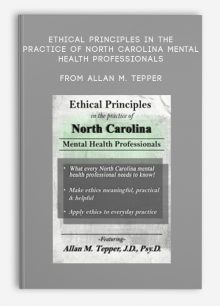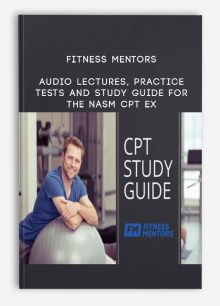Cognitive-Communication Disorders from Jane Yakel
$219.00 $65.00

Cognitive-Communication Disorders Assessment, Treatment of Neurological Impairments from Jane Yakel
Faculty:Jane Yakel
Duration:6 Hours 05 Minutes | Format:Audio and Video
Archive : Cognitive-Communication Disorders from Jane Yakel
Get Cognitive-Communication Disorders from Jane Yakel on Salaedu.com
Description:
Cognitive-communication impairments affecting attention, memory and learning can negatively affect an individual’s quality of life. These impairments can limit social interaction and diminish a person’s ability to assimilate information needed for learning. In order to achieve successful patient outcomes, it is essential that practitioners understand the processes underlying cognitive-communication impairments, choose relevant assessment instruments and apply critical thinking skills when developing interventions.
Join Jane Yakel for this dynamic and informative seminar. Through case studies and interactive learning, Jane reveals the essence of cognitive-communication disorders and offers a neuroscience model used to guide intervention. Relating this model to levels of therapeutic interventions, specific therapy techniques, and individualized strategies, she will provide you with evidence-based approaches to therapy focusing on the key domains of cognitive-communication: attention, memory and executive function. You will leave with effective and practical intervention strategies that can be readily applied to your current patient caseload.
Objectives:
At the completion of this program, you should be able to:
- Distinguish between the specific types of attention deficits and discuss therapeutic interventions to ensure effective outcomes.
- Differentiate between the “stages” and “systems” models of memory and discuss effective treatment strategies for improving memory function.
- Describe the models of care for cognitive rehabilitation with respect to specific diagnoses and rehabilitation settings.
- Distinguish between memory systems and identify appropriate intervention techniques for specific patient diagnoses.
- LExplain executive functions and identify the most effective intervention strategies for specific targeted behaviors.
- List specific techniques and strategies for maximizing brain function and preventing further cognitive decline.
- Implement critical thinking and problemsolving skis to develop highly individualized therapeutic interventions.
- Design individualized and measurable goals for cognitive-communication deficits.
Program Outline:
- Archives of the Brain
- Developing a critical thinking approach to therapeutic intervention
- Full spectrum of neurological disorders
- Attention / Visual Processing / Processing Speed
- Types of attention & attention deficits
- Visual Field Neglect vs. Visual Field Loss
- Processing Speed and Attention
- Case studies: Learning Assessments
- Comprehensive Patient Assessment
- Philosophy
- Approaches
- Principles
- Models
- Procedures
- Attention Assessments /Treatment
- Assessments / Tests for attention deficits
- Attention therapeutic interventions
- Medical management of Attention
- Documentation
- Medical Necessity
- Goals: Patient Centered Goals
- Skilled Documentation / Daily / Weekly
- Memory Domain
- Normal vs. pathological memory loss
- Reversible vs. irreversible memory loss
- System Memory: Declarative vs. Non-Declarative and all subsystems of memory
- Memory Assessments
- Quick and Simple Assessments
- Normed Based Assessments
- Criteria Bases Assessments
- Maximize Brain Function/Health Management
- Memory’s worst enemies
- Prevention of normal memory loss
- Depression with neuropathology
- Approaches of Therapeutic Interventions
- Traditional cognitive didactic approach
- Compensatory strategies
- unctional experiential approach
- Adaptation Approach of Memory
- Executive Functions
- Definition, development, importance of high level cognitive abilities
- Responsibilities of executive functions
- Behaviors associated with EF impairments
- Assessments/tests for executive function deficits
- Treatment of targeted executive function behaviors
- Environmental interventions and strategies
- Case Studies: Learning assessment
About the Speaker:
 Jane Yakel is a licensed and certified Speech-Language Pathologist with over 40 years of experience. Jane is a private contractor and consultant in Virginia and has worked in a variety of settings including acute care, outpatient clinics, home health agencies, skilled nursing facilities, hospitals and school districts. She has taught at the University of Wyoming, Utah State University and DeVry University (Phoenix). Her diverse background in both the health care and academic arenas has given her the opportunity to develop strong clinical skills in patient assessment, evaluation and treatment, and patient/family education. She has also shared her expertise as an author and presenter of national and state board continuing educational courses on various topics including the Prospective Payment System, ethics and professionalism, comprehensive assessment of the patient, and cognitive communication.
Jane Yakel is a licensed and certified Speech-Language Pathologist with over 40 years of experience. Jane is a private contractor and consultant in Virginia and has worked in a variety of settings including acute care, outpatient clinics, home health agencies, skilled nursing facilities, hospitals and school districts. She has taught at the University of Wyoming, Utah State University and DeVry University (Phoenix). Her diverse background in both the health care and academic arenas has given her the opportunity to develop strong clinical skills in patient assessment, evaluation and treatment, and patient/family education. She has also shared her expertise as an author and presenter of national and state board continuing educational courses on various topics including the Prospective Payment System, ethics and professionalism, comprehensive assessment of the patient, and cognitive communication.
Jane has been the director of a community re-entry program for traumatic brain injury survivors and has served as a national and regional trainer for rehabilitation program directors. Jane is a member of the American Speech-Language-Hearing Association, has served as a representative for the People to People Ambassador Program for American Speech and Hearing Association and is a prior member of the Wyoming Board of Examiners for Speech-Language Pathology and Audiology. She completed her undergraduate and graduate studies at the University of Wyoming, specializing in neuropathology.
Disclosures:
Financial: Jane Yakel is receiving a fee for speaking at today’s educational activity. She is also the author of “Managing Dysphagia: Therapy Manual” and “Cognitive Skill Enhancement: Therapy Manual” and receives royalty payments for the sale of both books.
Nonfinancial: Jane Yakel has no relevant nonfinancial relationships to disclose.
Get Cognitive-Communication Disorders from Jane Yakel on Salaedu.com
1 review for Cognitive-Communication Disorders from Jane Yakel
Add a review Cancel reply
Related products
HEALTH - FITNESS - LIFESTYLE - MEDICAL
HEALTH - FITNESS - LIFESTYLE - MEDICAL
HEALTH - FITNESS - LIFESTYLE - MEDICAL
HEALTH - FITNESS - LIFESTYLE - MEDICAL
HEALTH - FITNESS - LIFESTYLE - MEDICAL
HEALTH - FITNESS - LIFESTYLE - MEDICAL
HEALTH - FITNESS - LIFESTYLE - MEDICAL
Fitness Mentors – Audio Lectures, Practice Tests and Study Guide for the NASM CPT Ex
HEALTH - FITNESS - LIFESTYLE - MEDICAL










king –
“We encourage customers to contact Customer Service and think twice before making payment. All course contents will be similar to what is from the author.”
Thank you!